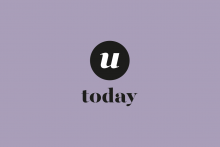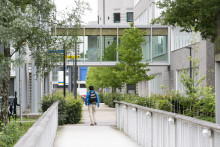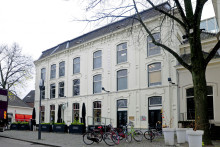Institutes, businesses and organizations should sign a declaration of indepedence that will guarantee the independence of contracted research. That declaration should put the outside world at ease and support the researchers.
The Royal Netherlands Academy of Arts and Sciences (KNAW) published this advice in their report `Science to go,' which was presented to Minister Van der Hoeven last week.
The declaration states, for example, that the client may not delay or stop publication of the research results, let alone change the conclusions. Also, the reward `and other displays of appreciation' should never depend on the outcome of the research.
KNAW cannot say how often the integrity of research is compromised. `I think about 98 percent of all research is completely bona fide,' said Alice de Gier, secretary of the KNAW committee that worked on the advance. `But I only hear the stories of people who stood strong. Nobody tells me: I gave in to the pressure or the money. Nobody tells me which clients try to exert too much pressure. After all, they want those clients to come back to them.'
In her interviews with scientists, De Gier spoke to at least two people who saw the rejected contract later awarded to someone else. The question remains how independent their colleagues are, but no one speaks out about that.
KNAW expressed fierce criticism on the `general national conditions for contracted services.' `Those express a completely different spirit than the scientists are used to. On several points, they are crossing the lines of academic freedom,' according to KNAW.
Some ministries do not know about the existence of those conditions and come up with their own limiting conditions. Even the Ministry of Education, Cultural Affairs and Science is guilty of that sometimes, according to De Gier.







